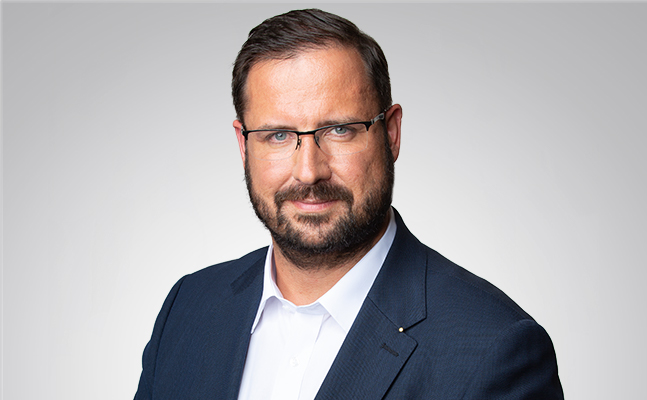
The dispute over the A3 expansion is part of a larger issue concerning border access between Austria and Hungary.Continue reading

Christian Hafenecker is a member of the National Council, politician of the Freedom Party of Austria (FPÖ) and is also Chairman of the Austria-Hungary Parliamentary Friendship Group. We asked the politician about his views concerning President Alexander Van der Bellen’s controversial decision not to ask the winning party of the September elections to form a new government, as well as the future prospects of Austrian-Hungarian relations under the forming left-wing government coalition.
Hungarian conservatives were hoping that the relationship between our countries will be put on a new level after the FPÖ’s electoral victory. Instead, there was a shift to the left with the forming centrist to left-wing coalition. What can be done to improve on relations among our countries given the current set-up?
The government negotiations in Austria are proving to be extremely difficult even before they have officially started, mainly because the “loser coalition” of the ÖVP, SPÖ, and the liberal Neos is not only very unpopular among voters, but also because there is hardly any common ground between these parties.
It remains to be seen whether a left-wing traffic light experiment in Austria, similar to the one that just failed miserably in Germany, will actually guide the country’s fortunes in the future.”
The FPÖ will certainly emerge even stronger from this process, as the most recent post-election polls show, which put us at well over 30 percent. No one will be able to get past us and our content or our ever-growing electorate, even if they try desperately now and with the help of a green-left federal president. Even now, as the strongest force in parliament, we are successfully steering political issues in our direction. It is therefore important to further deepen cooperation with our conservative partners, such as in Hungary, at all levels, and to learn from and help each other.
The decision to ignore the will of the Austrian people by President Van der Bellen shocked many in Hungary and was interpreted by some as an arbitrary distortion of the democratic process. This says a lot about the political culture of the current ruling elite in your country. How would you reflect on this development?
The decision of the notoriously left-wing Federal President has also caused a lot of criticism and outrage among the population in Austria. The head of state has clearly broken the democratic rules and caused lasting damage to democracy in our country. However, it was foreseeable that the system of “old parties” and left-wing forces would do everything in its power to prevent a right-wing conservative government, which would have a stable majority. However, this game is a game of fire and can backfire. At the end of the day, what counts is the will of the people and not what the system-elites negotiate in secret back rooms.
The left are very good in mobilizing the street for a political show of force, yet even after such a controversial decision by your president, the FPÖ proved reluctant to exercise its right and mobilize crowds for democratic protest. This is in line with other conservative parties in Europe, as if they have relinquished the right to protest to the Left.
It is a balancing act. During the Coronavirus period, we brought mass protests with hundreds of thousands of people onto the streets against the government’s coercive measures. Now we will wait and see how the destroyers of democracy unmask themselves and fail publicly. Then there will still be time to mobilize for a protest on the streets. The potential is there, we just have to wait for the right time.
What effect did the PfE cooperation between the Hungarian Fidesz and the FPÖ have during the elections? Some claimed a shared narrative with the unflinching Hungarian conservatives could be toxic among “moderate” voters, others claimed it to be an asset. How did it pan out in practice?
We see that right-wing conservative voters and citizens in particular do not see Hungary as a bogeyman as mainstream media and politicians portray it at every opportunity. On the contrary.
Hungary is a role model for many when it comes to family-oriented, right-wing conservative social policy.”
And the increasing rejection of EU measures also shows that the Hungarian path is the right one. In this sense, cooperation at the EU level is important and right, because only in this way can we stand united and stronger against the destroyers of Europe.
Going mainstream and winning elections proved to be the undoing of many of the national-conservatives parties in Europe, as chasing votes from the left in a drive to broaden their appeal meant diluting their core values. The European People’s Party is the graveyard of many such movements. Do you have a strategy to maintain your fundamental message as a patriotic movement?
The FPÖ’s success for years has been due to the fact that we stand by our principles and do not bend under pressure from outside. While formerly Christian-conservative parties such as the ÖVP go with the flow and with the times, betraying their values bit by bit, sacrificing them on the left-wing political altar, we remain steadfast and stand by our principles. Our voters also appreciate this. We listen to the voice of the people and act as their political advocate.
The Hungarian-Austrian relations’ Achilles heel, should the FPÖ form a government, are the Austrian-German relations. The German left, and I include the CDU/CSU in this group, could potentially make you compromise on some of the topics that you now share with Hungarian conservatives. How would your party handle this?
In foreign policy, the FPÖ follows a clear and confident line towards all states, including close neighbors such as Germany. For us, it is primarily about maintaining our neutral status, and subsequently, good economic relations. But even if we were in government, we would not allow any other state or its government to dictate with whom we should or may maintain political relations.
The FPÖ are now a decisive force in Austria. What is your action plan for the coming period to help strengthen economic or political ties with Hungary?
The aim is to learn from each other. In the case of Hungary, this would mean adopting successful policies, for example in the area of family, the fight against “woke madness” and LGBTQ propaganda, or in dealing with NGOs financed from abroad. Bilateral committees, regular visits, and exchanges on a diplomatic, cultural, political, and economic level – all of these areas would lend themselves to building even closer relations.
Featured Photo: FPÖ